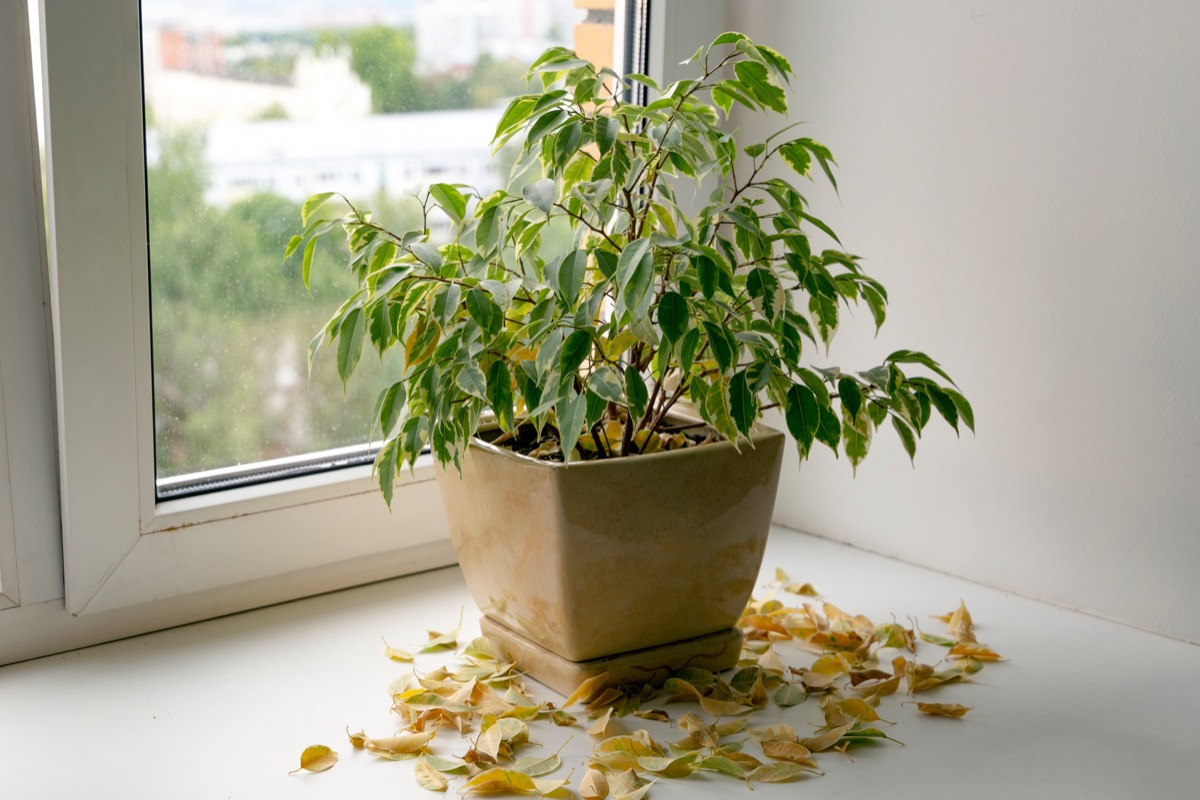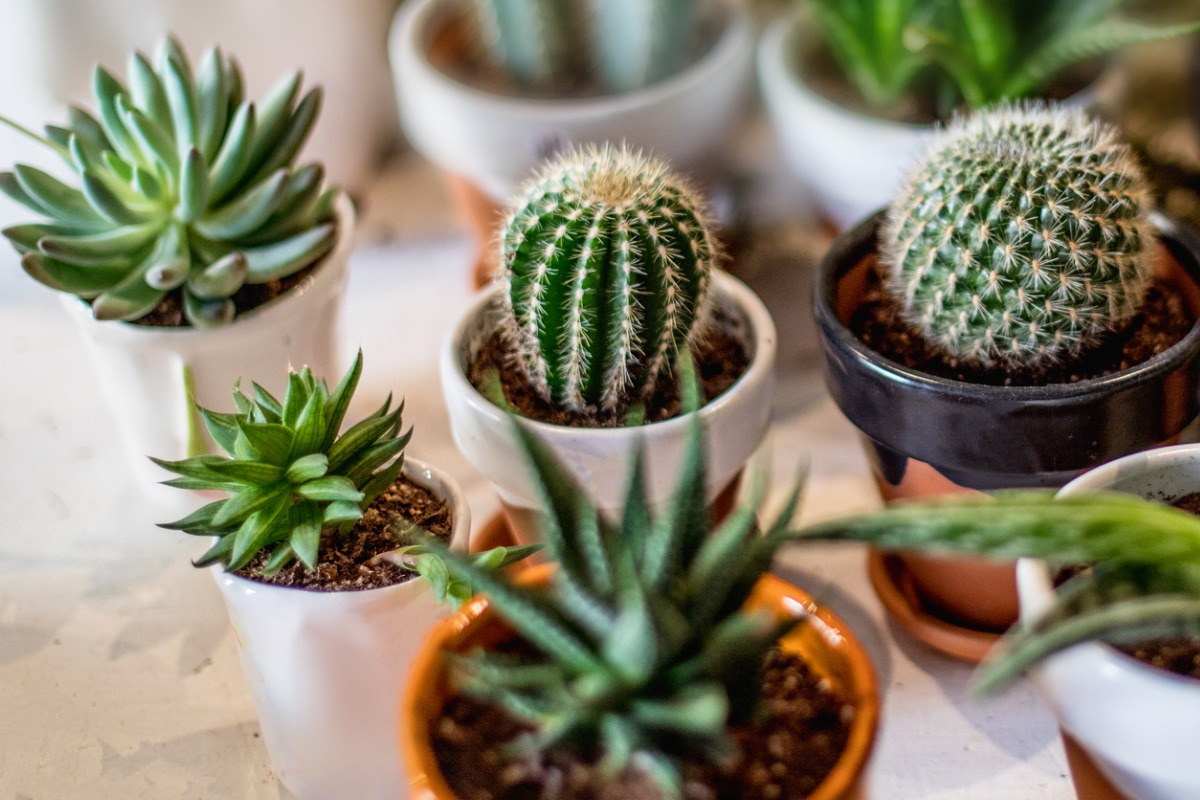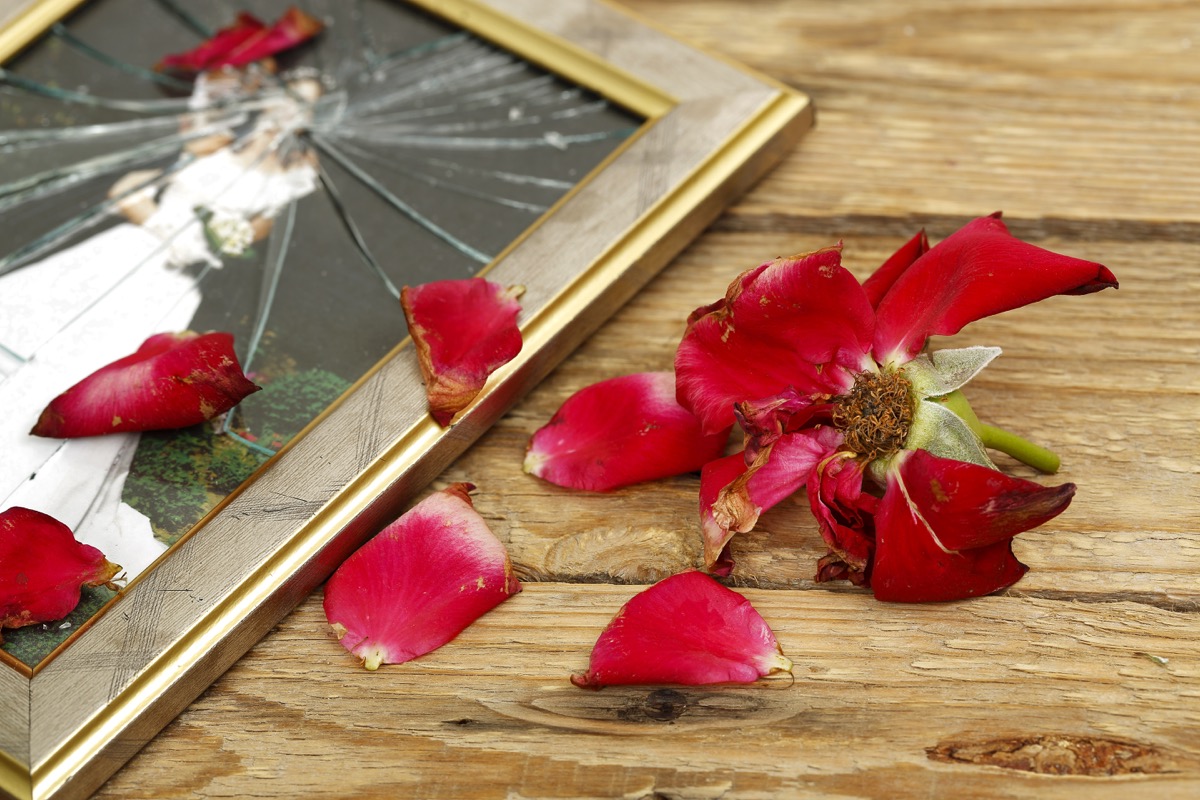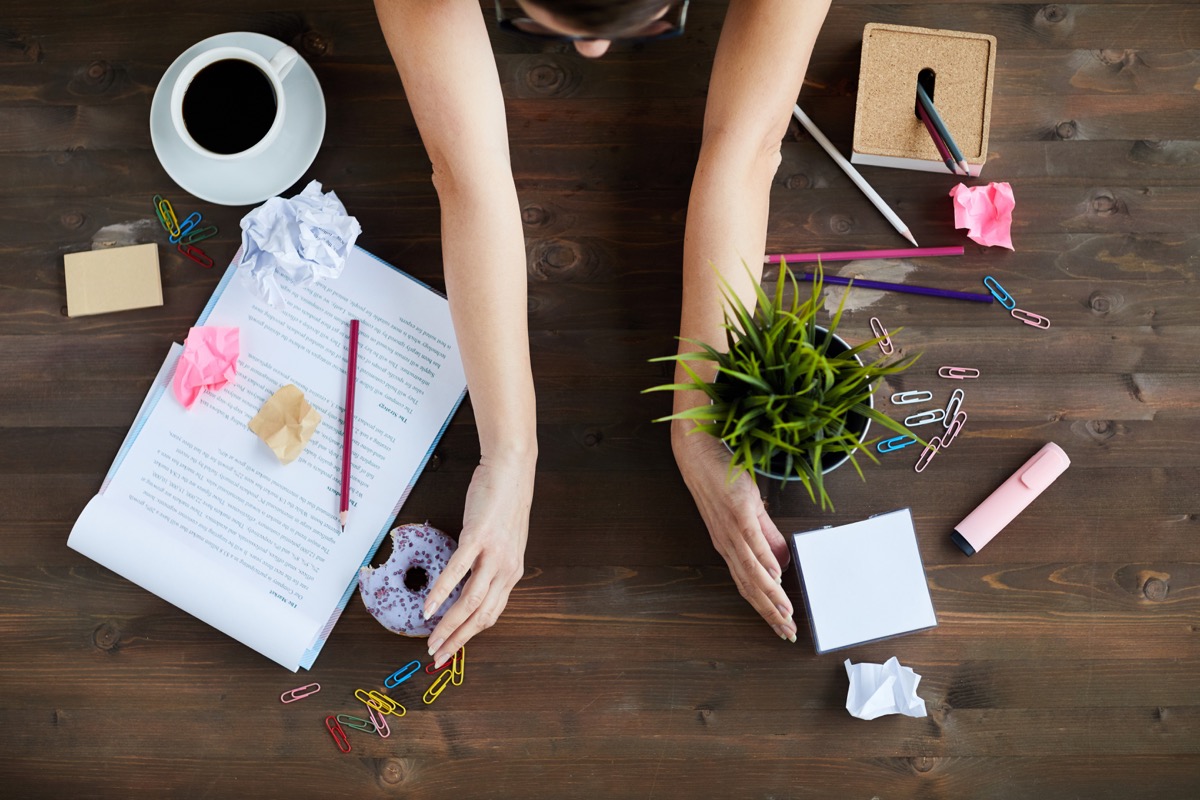5 Unlucky Things You Should Never Keep in Your Home, Feng Shui Experts Say

If you feel like you’ve been exceptionally unlucky, your home decor choices could be to blame. Luckily, you may be able to turn your bad luck around by following the 3000-year-old Chinese philosophy of feng shui.
Leslie VanDerven, a certified feng shui professional and strategic interior design advisor at Real Estate Bees, explains that feng shui is the art of using elements, colors, and placement of items to boost and balance the energy (or chi) and harmony of an environment. “A home that is free of clutter, functional, organized, and arranged properly will invite harmony, balance, and creativity,” she says.
However, certain things can have just the opposite effect. To learn which items can bring back luck into your home, read on to hear from feng shui experts.
READ THIS NEXT: The First Things Guests Notice About Your Living Room, According to Experts.
5 Home Items That Are Bad Luck in Feng Shui
1. Anything dead or dying

You’ll want to get rid of that dying houseplant you’ve been trying to revive, as well as that bouquet of dead roses. Turns out, in feng shui, any dead or dying decor can “bring lifeless or destructive energy into a home,” VanDerven warns.
And this doesn’t just mean dead or dying plants: It also includes taxidermy or anything that depicts “death or devastation,” such as an art piece, VanDerven adds. This is all considered bad luck and should be kept out of your home.
2. Spikey plants

Bad news for fans of desert decor: In feng shui, those cacti you love so much, or anything spikey for that matter, are “thought to bring tension and confrontation into the home,” VanDerven points out.
But even if you’ve gotten rid of your succulents, you’ll want to make sure any other spikey items are placed facing away from your bed or doorway, as these things act as “poison arrows” that generate negative energy and cause “conflict or agitation in the household,” explains Artem Kropovinsky, an interior designer and founder of Arsight.
This includes the knife block on your kitchen counter or any sharp-cornered furniture.
3. Broken things

According to feng shui, broken items “represent both internal and external clutter in your life,” and should be disposed of, says VanDerven.
“People may hang a painting with a damaged frame or use a coffee table with a chipped corner. The presence of these items symbolizes imperfection and can attract negative energy, which may manifest as difficulties or obstacles in various aspects of life,” explains Kropovinsky.
4. Mirrors in the wrong place

In feng shui, mirrors facing the wrong way are believed to bring bad luck.
VanDerven advises placing mirrors toward “beautiful and uplifting views” and avoiding having them face a TV, toilet, or workspace.
And you’ll want to forego placing a mirror in your bedroom, as it can have an “unsettling effect and is thought to be too energizing and disruptive to a good night’s sleep,” VanDerven explains.
Instead, place your mirror opposite a window to “expand and brighten a room” or in your entryway in a place where the front door isn’t reflected, as this can send good energy “right back out of the home.”
You can also use a mirror in your dining room or living room to “add festive energy by appearing to double the number of people,” suggests VanDerven.
If you’ve bought a bagua mirror—a feng shui-specific mirror used to ward off bad energy—it should never be inside your home, but rather on the exterior since they’re intended to “reflect negative energy,” says VanDerven.
For more home advice delivered straight to your inbox, sign up for our daily newsletter.
5. Clutter

You’ll want to remove any items in your home that are creating clutter or making a space feel cramped.
“A common design oversight is failing to allocate enough storage space, leading to cluttered countertops or unorganized bookshelves. The presence of disarray hinders the flow of positive chi, creating an environment where chaos and stress can thrive,” Kropovinsky points out.
It’s also important not to overcrowd a room with oversized furniture or excessive decor as this also leaves little room for good chi to flow.
“Cramped spaces not only make the room feel smaller but also create an oppressive atmosphere that can contribute to feelings of stress and unease,” adds Kropovinsky.